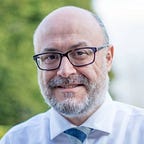Meditations on Tzimtzum from the Kabbalists
Rabbi Isaac Luria (the Ari)
- “Tzimtzum is the process through which the Infinite Light (Ein Sof) contracted itself to create a ‘vacant space’ for the finite world to exist. It is the initial act of divine self-limitation that makes creation possible. Meditating on Tzimtzum involves contemplating the mystery of divine self-contraction and the balance between divine presence and absence in the world.”
Rabbi Chaim Vital
- “The concept of Tzimtzum explains how the infinite God created a finite and limited world. By contracting His light, God allowed space for creation. This process is essential for understanding the relationship between the Creator and creation. Practical application of Tzimtzum involves recognizing the divine presence within the constraints of the physical world and striving to find the divine light hidden within these limitations.”
Rabbi Yehuda Ashlag (Baal HaSulam)
- “Tzimtzum represents the withdrawal of divine light to create the necessary conditions for free will and human agency. It is through this contraction that the potential for independent existence and spiritual growth arises. Engaging with Tzimtzum involves meditative practices that focus on understanding the role of divine concealment and the challenge of finding divine light in a seemingly concealed world.”
Rabbi Shneur Zalman of Liadi (the Alter Rebbe)
- “Tzimtzum is the process through which God concealed His infinite light to allow for the existence of a finite and diverse world. It is a profound act of divine humility and self-limitation. Meditation on Tzimtzum requires contemplating the nature of divine concealment and the ways in which this concealment allows for the development of individuality and personal growth.”
Rabbi Moshe Chaim Luzzatto (Ramchal)
- “Tzimtzum is the divine act of contracting His infinite presence to create a space for the world. This concept is crucial for understanding the balance between divine transcendence and immanence. Practical applications of Tzimtzum include recognizing the hidden presence of God in all aspects of life and striving to reveal the divine light through one’s actions and spiritual practices.”
The Zohar
- “The idea of Tzimtzum is hinted at in the mystical texts, describing the withdrawal of divine light to create the conditions necessary for the existence of the universe. It is a process that allows the finite to emerge from the infinite. Contemplation of Tzimtzum involves understanding the delicate balance between divine concealment and revelation, and the role of human effort in uncovering the hidden divine light.”
Rabbi Nachman of Breslov
- “Tzimtzum is the contraction of God’s light to make room for creation. It is a concept that explains the presence of divine absence in the world. Practical application of Tzimtzum involves embracing the challenges of divine concealment, seeking to discover and reveal God’s presence even in moments of apparent absence and darkness.”
Rabbi Menachem Mendel Schneerson (the Lubavitcher Rebbe)
- “Tzimtzum is the process through which God created a space that appears void of divine light, allowing for the existence of a physical world. It is a profound lesson in the necessity of divine self-limitation to enable creation. Meditation on Tzimtzum involves reflecting on the paradox of divine concealment and presence, and striving to bring divine awareness into the material world.”
These quotes reflect the diverse perspectives on the concept of Tzimtzum within the tradition of Jewish mysticism. Each quote touches on different aspects of Tzimtzum, including its principles of divine contraction, concealment, and the creation of space for the finite world, as well as its meditative focus and practical applications. The concept of Tzimtzum emphasizes the importance of understanding the balance between divine presence and absence, recognizing the hidden divine light within the physical world, and striving to reveal this light through spiritual practices and ethical actions.
